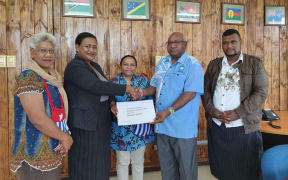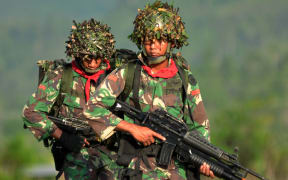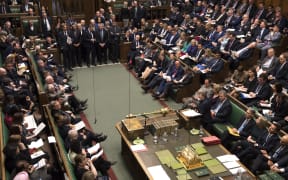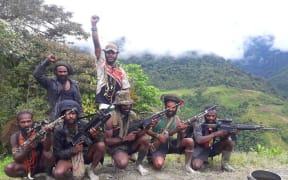Doused in black warpaint, draped in ammunition and clutching guns almost as big as some of them, the boys stare with hardened gazes into the camera.
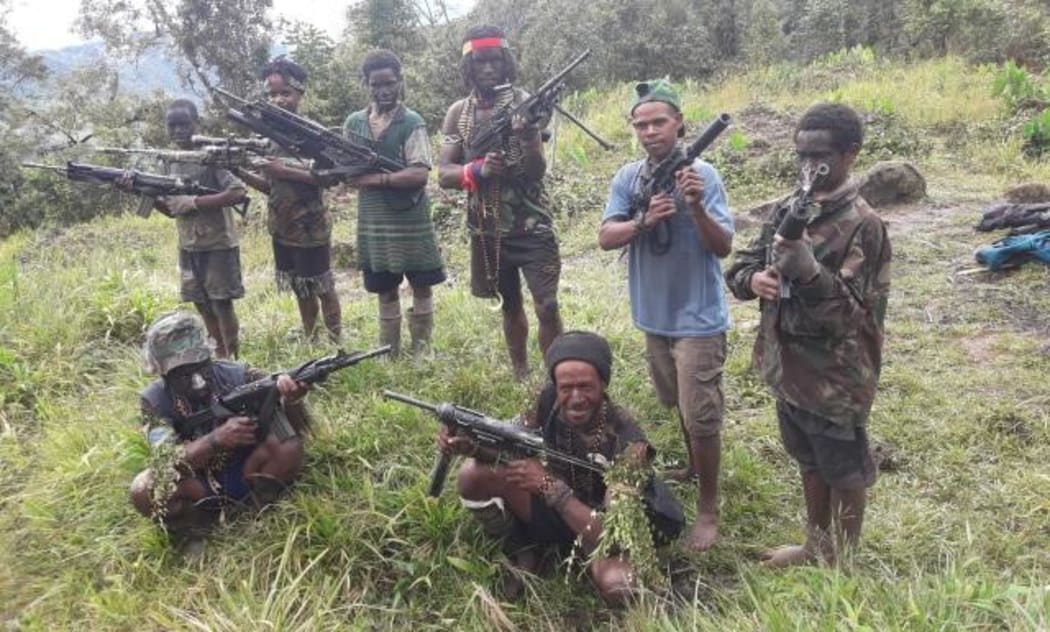
Child soldiers in West Papua Photo: Sebby Sambom, West Papua Liberation Army
The photo, taken somewhere in Papua's remote hills, is like countless others released by the West Papua Liberation Army, a rebel group waging war on the Indonesian military and proclaiming independence from the state.
But unlike the stream of propaganda showing what the group says is its burgeoning guerrilla force, the ceremoniously staged scene in May appears to show children fighting within the Liberation Army's ranks.
"These children automatically become fighters and opponents of the colonial military of Indonesia," said Sebby Sambom, a spokesperson for the Liberation Army. He said about a dozen soldiers between the ages of 15 and 18 were currently fighting for the rebel group in different parts of Papua.
Under international human rights laws, 18 is the minimum legal age for the recruitment and use of children in hostilities, according to the UN Working Group on Children and Armed Conflict. Using children under the age of 15 as soldiers is defined as a war crime by the International Criminal Court.
Mr Sambom, who is based in Papua New Guinea, accepted the Liberation Army was in violation of international conventions but said the enlistment of children as combatants was necessary because of what he described as oppression by the Indonesian military in Papua. He said children had been fighting for various rebel groups in Papua for decades.
The Liberation Army has been under the spotlight since a renewed campaign in the Central Highlands regency of Nduga since late last year.
In December, its fighters massacred at least 16 Indonesian construction workers in Nduga who were working on a state roading project, the Trans-Papua Highway. The attack, which also killed an Indonesian soldier, was the bloodiest in years and sparked a huge military-led hunt for the rebel fighters which has seen dozens killed on both sides in the past six months. The Liberation Army has accused Indonesia of a scorched earth campaign, which the military has denied.
Rights groups have documented a widespread displacement of civilians from Nduga as the Liberation Army and Indonesian military and police engage in frequent gunfights. In April, the Irish human rights group Front Line Defenders said more than 32,000 people had been displaced from the regency since December.
Children have also been caught up.
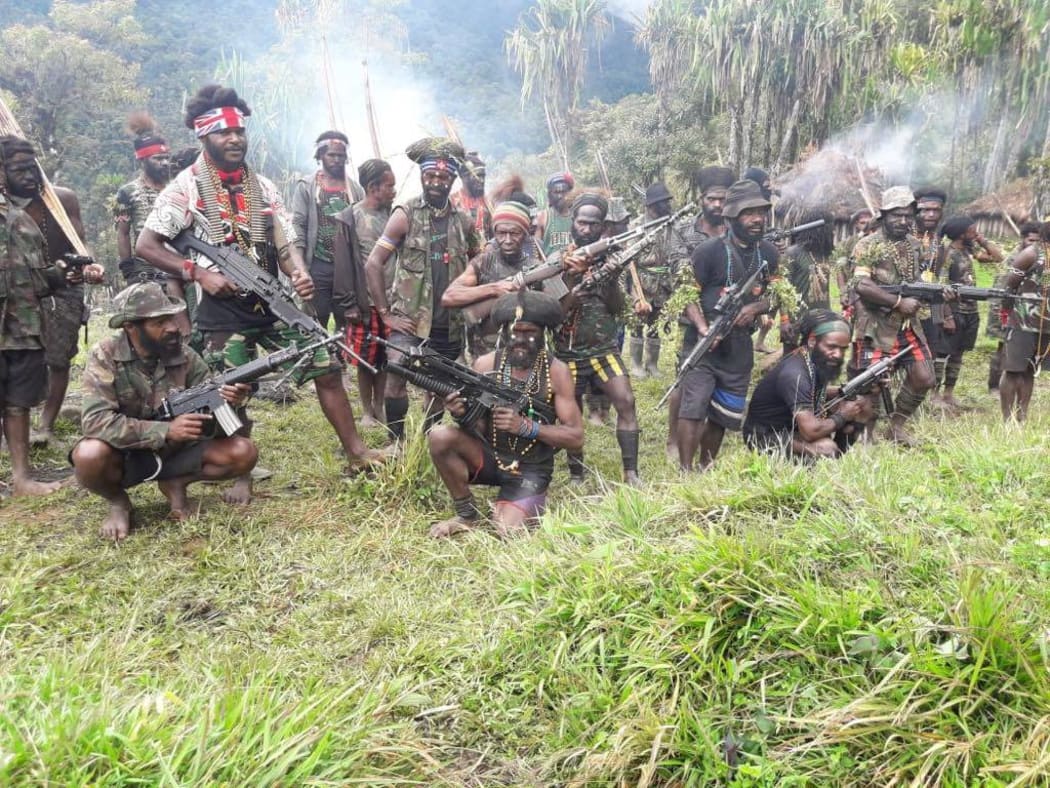
West Papua Liberation Army unit, led by Egianus Kogoya. Derakma, Nduga regency, Papua. March 2019 Photo: Supplied
The Humanity Volunteer Team of Nduga said in April there were more than 700 students at an emergency school for displaced people from Nduga that was set up in nearby Wamena.
Experts say the use of child soldiers in Papua is part of a cycle of violence, with many joining the fight after their parents die in battles with Indonesia's military.
"Some of them feel angry. If there is no trauma healing process for these kids, it is a matter of time in coming years, in coming months, they will join their fellow friends in the jungle," said Hipolitus Wangge, an Indonesian researcher who interviewed people displaced from Nduga this month.
He said one boy he interviewed in a Wamena displacement camp - who he estimated was aged between 10 and 11 - expressed a desire to join the Liberation Army, which is led in Nduga by Ekianus Kogoya, an amibitious commander who's about 20 years old.
"To some refugees, they still see Eki as the commander, as one of the strongmen in the Highlands at the moment. Because he can fight, he can kill, and to some he can be a symbol of Papuan resistance," said Mr Wangge, in reference to Mr Kogoya.
Chris Wilson, a senior lecturer at Auckland University who specialises in terrorism and conflict in Indonesia, said the use of child soldiers would prolong the violence in Papua by enlisting young people in the conflict before they are fully developed.
"It's going to be very difficult for them to be reintegrated into society once they're involved in the actual violence from that type of age."
Mr Wilson said their presence would also complicate any clashes for Indonesia's military, which would be likely prevented from using "overwhelming force" if it was aware of children within the rebels' ranks.
A spokesperson for Indonesia's military, Mohammed Aidi, said he did not know of the use of child soldiers by the Liberation Army.
